Top 10 Engineering Schools With The Highest Salary Potential

Engineering Schools That Deliver
As IT jobs continues creep out of stagnation, the largest threat to growth has been the IT skills gap; employers and recruiters have been on the hunt to fill engineering positions with talented IT professionals and have been coming up empty-handed. To help meet this demand, many are turning to academia, with a call to universities to bolster their programs to address the needs of the IT world. But, some schools are better than others at preparing students for real-world IT and setting them up for solid earning potential. As such, Payscale, the compensation and performance metrics tracker, recently released its report on the "Top Engineering Schools by Salary Potential," spotlighting science, engineering and technology-focused schools that produce engineering undergraduates with high-earning potential. Here's a look at not only PayScale's school rankings by salary but also information about tuition and the engineering and continuing education programs, where applicable. So, if you're thinking about engineering school, either as a new career or for continuing education, the following 10 schools are known for their return on investment.

No. 10 Cooper Union
Landing the No. 10 spot on PayScale's list is Cooper Union for The Advancement of Science and Art, in which its engineering graduates earned an average starting salary of $59,700 and a midcareer-level average salary of $103,000. Cooper Union, as it's more commonly known, is located in heart of the vibrant East Village neighborhood of Manhattan, N.Y. This privately held school's engineering program, the Albert Nerken School of Engineering, offers degrees in civil, chemical, mechanical and electrical engineering. The average cost of tuition for 2012-2013 for both undergraduate and graduate degrees from Cooper Union is $19,275 per semester, according to Cooper Union's website. The school also offers continuing education certificates with courses focusing on everything from 3-D printing to green technology and design.

No. 9 Carnegie Mellon University (CMU)
Undergraduates walking away with engineering degrees from Carnegie Mellon University (CMU), located in Pittsburgh, earned average starting salaries of $59,800 and midlevel average salaries of $104,000, landing CMU in the No. 9 PayScale slot. Tuition for in-state undergrads costs around $46,670, a bit hefty. CMU's School of Engineering offers degrees in chemical engineering, civil and environmental engineering, electrical and computer engineering, mechanical engineering, and materials science and engineering.
But, for those looking to bolster their resumes or just extend their engineering expertise, CMU, through its Online Learning Initiative and Professional & Distance Learning program, also offers engineering-related certifications and courses ranging from robotics to software, with specializations in information security, architecture and more.
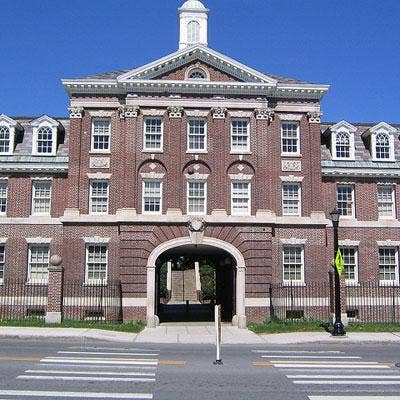
No. 7/8 (Tie) Rensselaer Polytechnic Institute (RPI)
Tying for the No. 7/No. 8 spot on PayScale's list is Rensselaer Polytechnic Institute (RPI). Located in Troy, N.Y., RPI is the oldest technology institute in the U.S., according to the school's website. RPI undergrads earned average starting salaries of $59,000 and average midcareer salaries of $105,000. RPI's School of Engineering offers engineering degrees with specializations in biomedical; civil and environmental; chemical and biological; electrical, computing and systems; industrial and systems, materials science; and mechanical, aerospace and nuclear engineering. The estimated cost of attendance for 2012-2013 first-year undergrad tuition came in around $43,350, according to RPI's website.

No. 7/8 (Tie) Colorado School of Mines
Tying with Rensselaer Polytechnic Institute (RPI) for the No. 7/No. 8 spot on PayScale's list is Colorado School of Mines. Mines undergraduates earned average starting salaries of $64,200, slightly more than RPI's $59,000, and average midlevel salaries of $105,000, the same as RPI. Mines' engineering program offers a variety of undergraduate engineering degrees, ranging from chemical and biological engineering to civil, electrical and mechanical engineering. It even offers a minor in humanitarian engineering. Mines also boasts the largest student chapter of the Society of Women Engineers in the country, according to the school. In-state tuition comes in around $13,590, slightly less than Cooper Union ($19,275) and significantly less than Carnegie Mellon ($46,670). In addition to its degree-seeking programs, Mines has a rich continuing education program that includes workshops, conferences, certificates and courses.
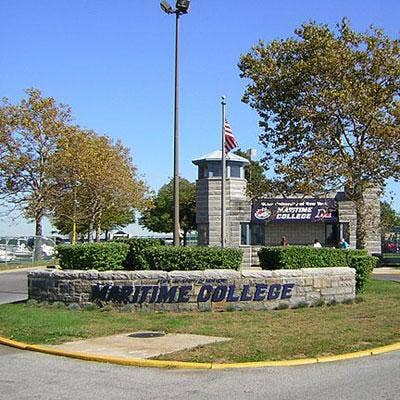
No. 6 SUNY Maritime College
Sliding into the No. 6 spot on PayScale's list is SUNY Maritime College, whose undergrads earned average starting salaries of $59,000 and midcareer salaries of $109,000. SUNY's engineering department offers a variety of engineering-related bachelor's degrees, including degrees in electrical engineering, marine engineering, mechanical engineering and naval architecture. The estimated cost of tuition and fees for undergrads is around $6,090. Located in Bronx, N.Y., SUNY Maritime College also offers a number of online courses, and although the school is most well-known for preparing officers and cadets for real-world naval and maritime engineering issues, it also offers a variety of professional and career training programs for private industry as well.
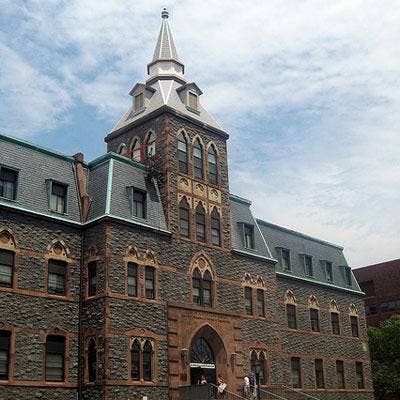
No. 5 Stevens Institute of Technology
Coming in at No. 5 on PayScale's list is Stevens Institute of Technology in Hoboken, N.J. With undergrad tuition starting at around $20,835, Steven's engineering undergrads, according to PayScale, earned average starting salaries of $60,900 and midcareer salaries of $112,00. Stevens' Schaefer School of Engineering and Science offers engineering B.A.s in a variety of engineering disciplines, from computer science, mathematical sciences and physics to chemical/chemistry, chemical biology and biomedical, as well as civil, environmental and ocean, to name a few. Stevens also offers a number of continuing education engineering courses for those looking to meet professional licensing requirements or for continuing education purposes. Addressing IT executives' needs, Stevens offers executive-level graduate education through its Systems Design and Operational Effectiveness (SDOE) program. Geared toward busy senior-level managers and executives, the program is offered on-site at corporate locations, online and on the Hoboken campus.
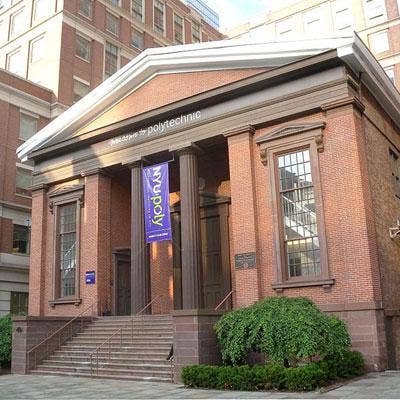
No. 4 Polytechnic Institute of New York University (NYU-Poly)
With average starting salaries of $56,800 and midcareer salaries of $117,000, Polytechnic Institute of New York University (NYU-Poly) lands the No. 4 spot on PayScale's list. Located in Brooklyn, N.Y., NYU-Poly 2013-2014 tuition is around $19,651. NYU-Poly's engineering program offers degrees in chemical and biomolecular; civil and urban; computer science; electrical and computer; financial and risk; and mechanical and aerospace. The school also boasts the interdisciplinary nature of its programs, encouraging students to combine the aforementioned programs with specialty programs or courses in math, sciences, technology, culture and society, and technology management and innovation. And for those looking to amp up their resumes and advance their careers, NYU-Poly has a variety of continuing education and certificate programs, from information security and systems administration to financial engineering and technology management to telecommunications network management and wireless communications, to name a few.

No. 3 Massachusetts Institute of Technology (MIT)
Massachusetts Institute of Technology (MIT) in Cambridge, Mass., comes in at No. 3 on PayScale's list, with engineering undergrads boasting average starting salaries of $68,400 and midcareer salaries of $118,000. For regular undergrads, tuition for 2013-2014 is $21,605. MIT's School of Engineering offers programs in aeronautics and astronautics; biological engineering; chemical engineering; civil and environmental engineering; electrical engineering and computer science; materials science and engineering; mechanical engineering; and nuclear science and engineering. MIT also offers a number of short programs and continuing education with coursework in everything from robotics and systems engineering to enterprise transformation and information and communication technologies.
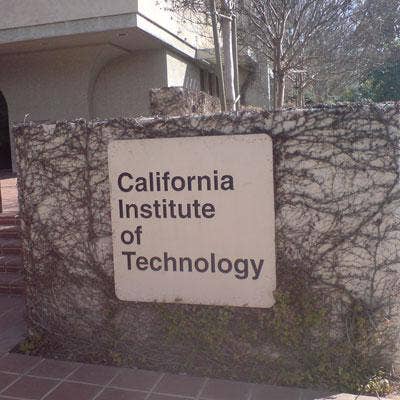
No. 2 California Institute of Technology (Caltech)
Located in Pasadena, Calif., California Institute of Technology (Caltech) undergrads earned average starting salaries of $67,400 and midcareer salaries of $127,000, landing Caltech in the No. 2 spot on PayScale's list. Caltech's Engineering and Applied Science program offers degrees in aerospace; applied physics and materials science; bioengineering; computing and mathematical sciences; electrical engineering; environmental science and engineering; and mechanical and civil engineering. Tuition starts out at $39,990 for the 2013-2014 academic year. A plethora of continuing education courses are offered through Caltech's California Institute of Technology Center for Technology and Management Education. Engineering certificate programs and short courses are offered in project management, systems engineering, and innovation and technology, among others.

No. 1 Harvey Mudd College (HMC)
And, taking the No.1 spot on PayScale's list is Harvey Mudd College (HMC) in Claremont, Calif. HMC undergrads earned average starting salaries of $66,800 and midcareer salaries of $135,000. Unlike the previously mentioned engineering programs, HMC's engineering program only offers a "general" engineering major, instead encouraging a multidisciplinary approach it claims provides a broad scope of coursework that prepares its burgeoning engineering undergrads to be adaptable in the ever-changing technological world. Tuition starts out around $44,159. Although HMC does not have a dedicated continuing education program, interested students, through its affiliation with the Claremont Colleges consortium, can access a variety of professional and continuing education courses throughout the Claremont College system.